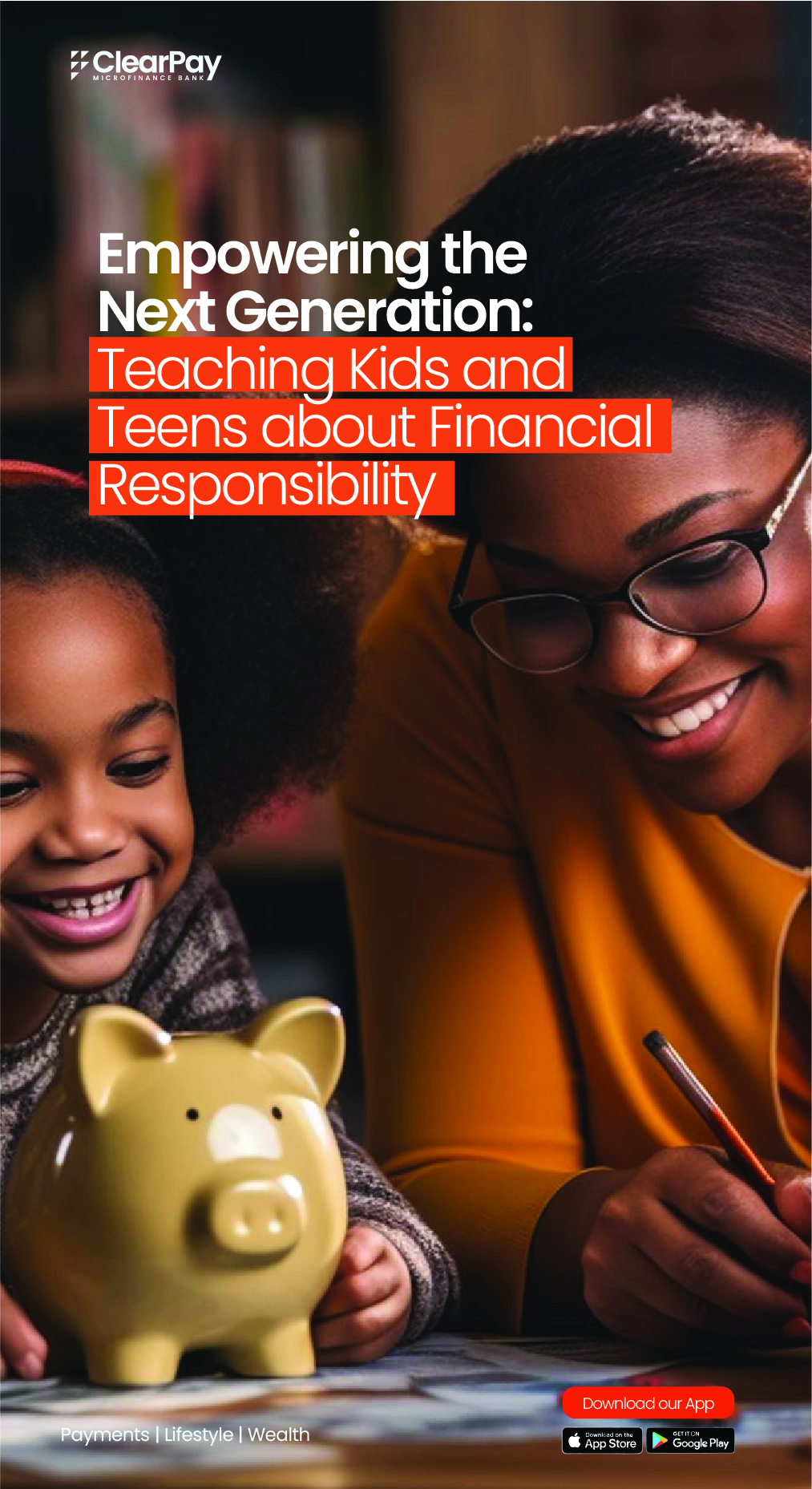Empowering the Next Generation: Teaching Kids and Teens about Financial Responsibility
In a world where financial literacy is more critical than ever, instilling good money habits in kids and teens is essential for their future success. But teaching financial responsibility doesn’t have to be boring! Parents and educators can empower the next generation to take control of their finances and build a secure future. We have listed some exciting ways children can learn to do more and some strategic ways we can enlighten the kids.
- Start Early with Hands-On Activities: Children love make-believe. Introduce basic financial concepts to young children through interactive activities like setting up a fake store, setting up a pretend bank, or creating a savings jar for allowance. These hands-on experiences help kids understand the value of money and develop essential skills like budgeting and saving from an early age.
- Use Technology to Teach: Tab addictions are a must have for a lot of children now. Leverage kids’ love for technology by incorporating educational apps and games that teach financial literacy skills. These styles of Digital games adda layer of fun and interactive ways for kids to manage money, set savings goals, and track spending.
- Make it Relevant and Real-World: Connect financial lessons to real-life situations that resonate with kids and teens. Whether it’s planning a budget for a family vacation, comparing prices at the grocery store, or discussing the costs of college tuition, showing the practical application of financial concepts makes learning more meaningful.
- Encourage Entrepreneurship: Foster entrepreneurial spirit by encouraging kids to start their own small business ventures, such as selling homemade crafts, offering their services at home for a fee, or launching a business with their friends. Not only does this teach valuable lessons about money management and business fundamentals, but it also instils confidence and creativity.
- Set Financial Goals Together: Help kids and teens set achievable financial goals based on their interests and aspirations. Whether it’s saving for a new bike, a birthday present they want, or a dream vacation, goal setting teaches the importance of planning, patience, and discipline.
Always serve as a positive role model by demonstrating responsible financial behaviours in your own life. Involve kids in family discussions about budgeting, saving, and investing, and share your successes and challenges with money management. As teens grow older, give them increasing responsibility over their finances, such as managing a part-time job income, opening a bank account, or making purchasing decisions. Empowering teens to take ownership of their financial decisions builds confidence and prepares them for adulthood.
By implementing these exciting strategies, parents and educators can inspire a new generation of financially savvy individuals who are equipped with the knowledge and skills to navigate the complexities of the modern financial landscape. Together, let’s empower kids and teens to take control of their financial futures and thrive in a world of endless possibilities.


